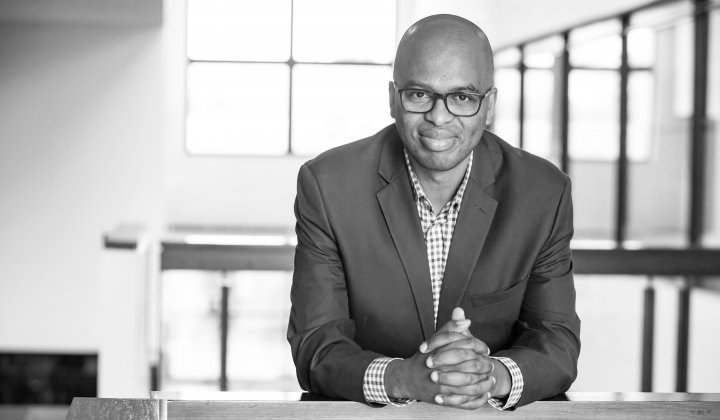The end of 2023 saw a landmark deal reached at the COP28 United Nations summit on climate change in Dubai. Pressure was piled on wealthy nations to contribute to a loss and damage fund for vulnerable emerging countries being hard hit by climate crises such as drought and flooding. After years of prevarication, the world finally seemed to come to the party after 2023 recorded extreme temperatures and closed in on the 1.5°C limit for global warming.
Just a few short months later, however, populist voices and rising geopolitical tensions were chipping away at the promise of global action as almost half of the world’s population prepared to go to the polls in 2024 – South Africa, the US, India, the European Union, and Russia among them.
Ongoing conflicts in the likes of Gaza and Ukraine provided fresh and fertile ground for geopolitical tensions to corrupt the core climate action message. As Prof. Jonathan White, of the London School of Economics, noted in a recent white paper, "Populism … finds resonance in the critique of political necessity, and prospers in emergency settings where policy is rationalised in these terms. As global warming comes to be framed as an emergency, it becomes a natural target for populist critique.”
Populist attacks against climate change action have an impact on the global consensus required for meaningful action. They also cause critics to highlight the shortcomings of influential tertiary education institutions to meet their own net-zero commitments. This even as sustainability becomes a prominent feature in the curricula of global business schools with the likes of the University of Exeter Business School, with whom GIBS is in partnership, now offering a One Planet MBA.
For global business schools and universities, the challenges of meeting climate commitments are manifold. Some, notably in the Americas, are influenced by prevailing political views or concerns by influential bodies that the measurement and reporting of emissions is "unworkable". For others, it has been all too easy to lean on carbon offsets rather than addressing sustainable consumption patterns and the culture of the educational institution. In 2022, the UK’s People & Planet University League rankings showed that 59% of the higher education sector was failing to achieve its 15-year carbon reduction targets.
What does this mean for business education?
As a signatory to the Business Schools for Climate Leadership (BS4CL) Africa initiative and as a United Nations Principles for Responsible Management (PRME) Champion school, GIBS sees its role as more than just a standalone climate issue or one of compliance alone. Rather, as one of the leading African business schools, we see ourselves as a key stakeholder in a broader social and economic reality. As a result, we are clear about our role in supporting companies and businesses to develop and implement clear plans towards a climate-resilient society.
Our partnerships with the likes of the University of Exeter (Exeter, UK), Gabelli School of Business (New York, US), IESE business school (Barcelona, Spain), and Shizenkan University (Tokyo, Japan) allow us to share best practice, while envisaging the future of capitalism and the place of business in the world of tomorrow. In addition, the work we do with leading South African business schools such as Stellenbosch University and African business schools like the American University in Cairo (Egypt), Lagos Business School (Nigeria), and Strathmore Business School (Kenya) ensures we help to equip business leaders and managers with the know-how to incorporate sustainability thinking into their strategic decision making.
At a company level, and in addition to our public-offered ESG and sustainability programme, we are proud of our customised ESG engagements in the automotive sector with clients BMW, Mercedes-Benz, and VW. Furthermore, through Toyota, we have supported the leadership and management talent pipeline in the manufacturing sector through the Toyota Wessels Institute of Manufacturing Studies (TWIMS). We are also privileged to be in a multi-year partnership with organisations like Standard Bank, contributing to their ESG journey as they grapple with ensuring they have sufficient talent to navigate the complexity of transition finance, stranded assets, and all things climate finance. Similarly, we have a noteworthy collaboration with diversified industry group Barloworld to create a Sustainable Evolution Executive Development Programme that will be delivered to 180 Barloworld executives over three years.
As Dominic Sewela, Group CEO at Barloworld, noted when we unveiled the new programme in 2023, “For us to be visionary leaders we need to evolve. We need to evolve our approach to leadership and develop leaders that are equipped to lead the transformation that creates a positive impact not only within our organisation but also the broader world… This programme, developed in collaboration with GIBS business school, is designed to equip our leaders with the skills and capabilities necessary to drive sustainable growth, promote ethical decision-making, and nurture holistic well-being across the Barloworld group by empowering our leaders with enhanced ESG, ethics and wellness skills development training.”
While we are excited about these partnership and initiatives, and their future impact, like many business schools we hope that our efforts are not a case of "too little too late". While we continue to make our campus a more sustainable and efficient space by reducing waste, using biodegradable cutlery, and reducing water usage, we appreciate the need to accelerate our efforts if we are to stand out as a role model for business.
New commercial opportunities will doubtless emerge as a result of the world’s climate response, coupled with stronger consumer and civil society demands for sustainable practices. Whether this relates to energy-efficient building solutions or greener transport, resilient food production methods or biodiversity finance and investments, businesses should seriously be shifting mindsets from operating in a world of increased human need and resource scarcity to one driven by ideas of sustainable consumption.
How do we navigate this path?
At GIBS, we view our uniquely South African experience as a living laboratory that continues to grapple with many of the issues the world will be confronting with the same intensity soon enough – be it navigating water scarcity and poor energy supply or addressing systemic poverty and the negative impacts of pollution and corruption. Yes, these discussions are dispiriting but as South Africans show, people can be resilient. Furthermore, South Africa has shown a prodigious ability to develop capabilities, mindsets, and ways of surviving weak governance and bad leadership outcomes. The rest of the world is moving in this direction, and it should take note.
Our challenge to the world is to put South Africa under the microscope and learn from both our mistakes and our successes. Let’s turn our bad experiences into lessons for the world.



